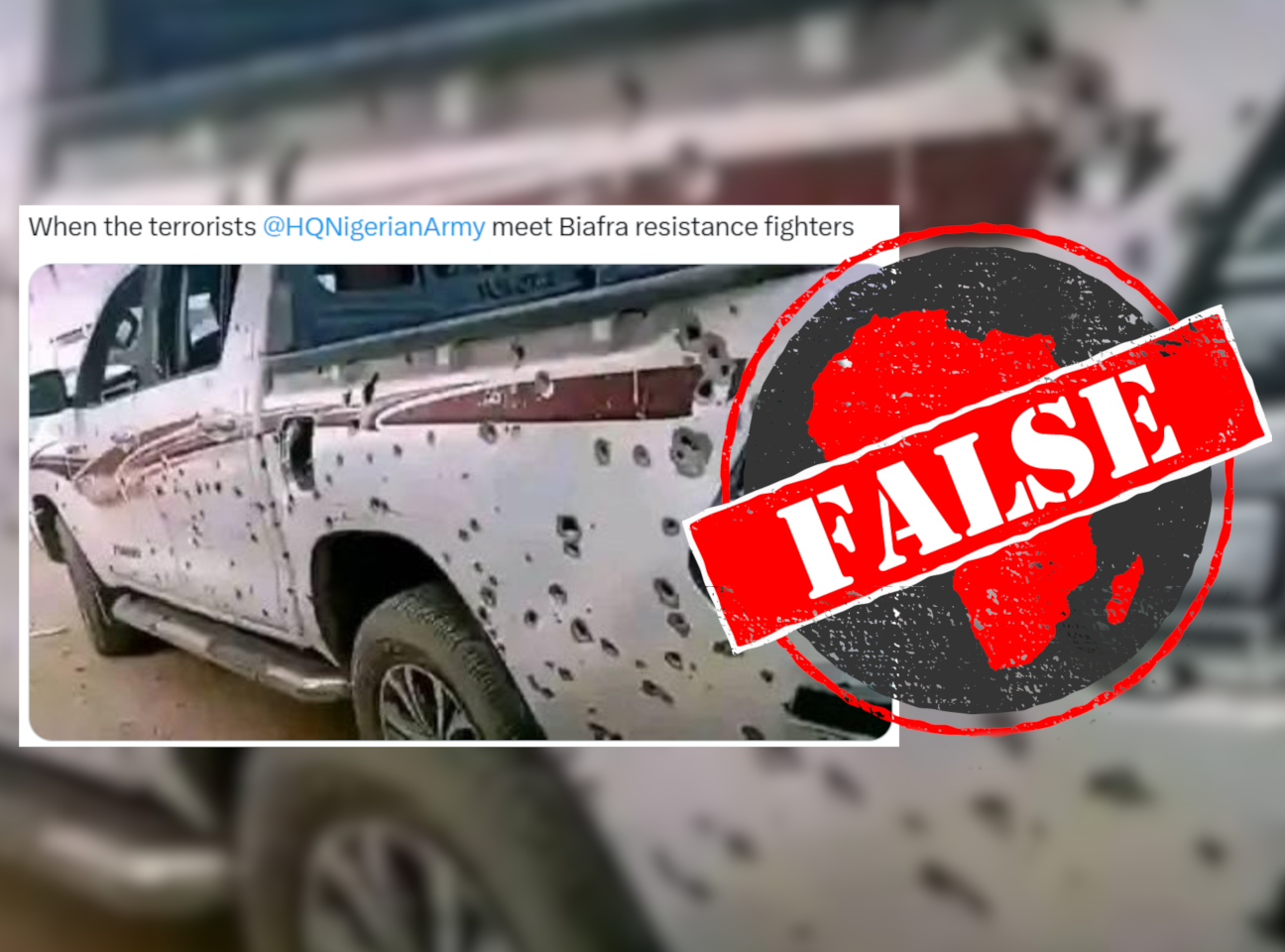IN SHORT: Contrary to claims by a faction leader of the Nigerian terrorist group Ipob, the photo does not show a Nigerian Army vehicle riddled with bullets by Biafra agitators.
In April 2024, Simon Ekpa shared a photo on social media of a vehicle riddled with bullets. He claimed that it belonged to the Nigerian Army.
Ekpa is a factional leader within the Indigenous People of Biafra (Ipob), a separatist group in eastern Nigeria that seeks to re-establish the Republic of Biafra.
It has continued to agitate for the restoration of Biafra, despite being declared a terrorist group by the Nigerian government in 2017.
A post on Facebook with the same claim reads: “Oku dikwa over 🔥🔥🔥 When the terr0rists @HQNigerianArmy meet Biafra resistance fighters. -PM.”
We found other instances of the claim on Facebook here, here, here, here, here and here.
But is the photo of a bullet-riddled Nigerian Army vehicle? We checked.

Photo from an assault on the Syrian military
A Google reverse image search of the photo led us to an 8 April post on X (formerly Twitter) by “TRACTerrorism”. The account said the photo was from an attack on the Syrian Democratic Forces.
The Terrorism Research & Analysis Consortium (Trac) is a group that provides compendiums of information and analyses of terrorist groups and activities.
The photo caption reads: “Suspected Islamic State (#IS) #Armed Assault of Vehicle Belonging to Syrian Democratic Forces (#SDF/PKK), in #al-Alwa, #Hasakah Governorate, #Syria.”
The Islamic State is a militant group that captured and held large parts of eastern Syria from 2014 to 2019.
Africa Check was unable to find any news of a clash between the Nigerian Army and Biafra agitators, or a photo of the bullet-riddled vehicle in any credible media outlet in April.
Republish our content for free
For publishers: what to do if your post is rated false
A fact-checker has rated your Facebook or Instagram post as “false”, “altered”, “partly false” or “missing context”. This could have serious consequences. What do you do?
Click on our guide for the steps you should follow.
Publishers guideAfrica Check teams up with Facebook
Africa Check is a partner in Meta's third-party fact-checking programme to help stop the spread of false information on social media.
The content we rate as “false” will be downgraded on Facebook and Instagram. This means fewer people will see it.
You can also help identify false information on Facebook. This guide explains how.


Add new comment